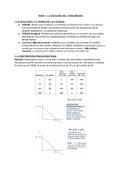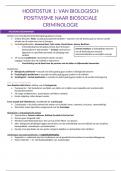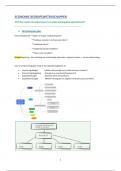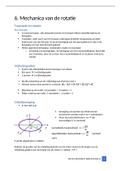Lectures Theme Cultural History
Lecture 1: Introduction
What is Culture?
Relation between language, image and (historical) truth or reality
Interest in different social groups in society
Influence Social Sciences (sociology, anthropology, psychology)
Culture of Images is part of the field
Hypothesis or statements
Culture belongs to being human
Culture and Nature: Opposites?
Culture is civilization
Culture: interpretation changes in history
Projection: we can only understand things from our own worldview
Cultural History
Study of certain categories of objects (products of culture)
Study of how people tried to give meaning to these objects in the past
Study of how people have understood themselves and their world in a
specific time or region
Production of culture
Culture is both material and symbolic production, so cultural production means:
Objects: producing culture
Interpretation: giving meaning to objects
The Importance of Cultural History
Symbolic and literal meaning
Giving meaning to the world depends on historical context
Cultural historians try to understand the symbolic meaning, even if he or
she is unfamiliar with the codes
Etymology of Culture
Origin and history of the word. Latin “colere” means to till, farm, cultivate or
worship => to cultivate the mind.
Culture as a metaphor
M. T. Cicero (106-43 BC): cultura animi, cultivating the mind, like a field of crops
However, original meaning of culture as cultivating still prominent today. E.g.
cultivate a culture of learning.
Humanistic Ideals in the West
Humanistic interpretation: personal cultivation and improvement
Becoming a civilized man or woman
Ideal of cultivating groups
Teaching undereducated people or children
Ideals of cultivating the “wild man”
Methods
Historical influence human subjectivity and creativity
, Searching for a system or coherence
The hermeneutical approach (understanding rather than explaining)
Terms
Style, mentality, representation (representing reality), identity, gender
Cultural relativism: can one not belong to culture?
Understanding Culture
Postmodernism: describes a broad movement that developed in the mid- to
late 20th century across philosophy, arts, architecture and criticism which marked
a departure from modernism. Postmodernism is typically defined by an attitude
of scepticism, irony, or rejection towards grand narratives, ideologies and
universalism, including objective notions of reason, human nature, social
progress, absolute truth and objective reality.
Instead, it asserts to varying degrees that claims to knowledge and truth are
products of social, historical and political discourses or interpretations, and are
therefore contextually or socially constructed.
Culture can be said to act as a mirror of our worldview; this image is constantly
changing.
Globalization of Knowledge
Until 1960s-1970s, culture was primarily associated with one specific civilization,
tradition or linguistic area. To this day, cultural studies remain confined to
specific geographic areas. However, the segregation of academic traditions is
subsiding.
Homi Bhabba (1949-)
Indian American cultural theorist
Is polarisation a precondition for a polemic?
Binarity (binary thinking)
Literally: duality
Binary thinking is thinking in opposites. The answer to a question is, for
example, either yes or no; there is no middle ground possible
Material culture
Nature-culture dichotomy
Humans, unlike animals, make things => isolated objects that can only be
understood through context
The boundary between object and culture is blurred, as the interpretation
of an object coincides with the culture that produced it
Recognition of this complexity resulted in the material turn, a movement
that is closely related to a broader cultural turn which focused on language
as the basis of all human experience.
Cultural criticism
“Death of the author”: was proclaimed in literary studies in the 1980s,
which meant that there was a significant distance between the writer as
the author of a story and the text that is to be interpreted
, In this view, it is strictly the text itself that should be studied – the
contextualisation of the author or the period in which the work was created
is not necessary
Why do humans need a critique of culture?
Bureaucracy and Civilization
Bildung: 19th century ideal which posited that people could “cultivate”
themselves into a better version of themselves
Paradoxical modality of existence: there is a form of existence that took
place outside of our range of view. -> it is also important to consider non-visible
elements in trying to understand a culture.
Lecture 1: Introduction
What is Culture?
Relation between language, image and (historical) truth or reality
Interest in different social groups in society
Influence Social Sciences (sociology, anthropology, psychology)
Culture of Images is part of the field
Hypothesis or statements
Culture belongs to being human
Culture and Nature: Opposites?
Culture is civilization
Culture: interpretation changes in history
Projection: we can only understand things from our own worldview
Cultural History
Study of certain categories of objects (products of culture)
Study of how people tried to give meaning to these objects in the past
Study of how people have understood themselves and their world in a
specific time or region
Production of culture
Culture is both material and symbolic production, so cultural production means:
Objects: producing culture
Interpretation: giving meaning to objects
The Importance of Cultural History
Symbolic and literal meaning
Giving meaning to the world depends on historical context
Cultural historians try to understand the symbolic meaning, even if he or
she is unfamiliar with the codes
Etymology of Culture
Origin and history of the word. Latin “colere” means to till, farm, cultivate or
worship => to cultivate the mind.
Culture as a metaphor
M. T. Cicero (106-43 BC): cultura animi, cultivating the mind, like a field of crops
However, original meaning of culture as cultivating still prominent today. E.g.
cultivate a culture of learning.
Humanistic Ideals in the West
Humanistic interpretation: personal cultivation and improvement
Becoming a civilized man or woman
Ideal of cultivating groups
Teaching undereducated people or children
Ideals of cultivating the “wild man”
Methods
Historical influence human subjectivity and creativity
, Searching for a system or coherence
The hermeneutical approach (understanding rather than explaining)
Terms
Style, mentality, representation (representing reality), identity, gender
Cultural relativism: can one not belong to culture?
Understanding Culture
Postmodernism: describes a broad movement that developed in the mid- to
late 20th century across philosophy, arts, architecture and criticism which marked
a departure from modernism. Postmodernism is typically defined by an attitude
of scepticism, irony, or rejection towards grand narratives, ideologies and
universalism, including objective notions of reason, human nature, social
progress, absolute truth and objective reality.
Instead, it asserts to varying degrees that claims to knowledge and truth are
products of social, historical and political discourses or interpretations, and are
therefore contextually or socially constructed.
Culture can be said to act as a mirror of our worldview; this image is constantly
changing.
Globalization of Knowledge
Until 1960s-1970s, culture was primarily associated with one specific civilization,
tradition or linguistic area. To this day, cultural studies remain confined to
specific geographic areas. However, the segregation of academic traditions is
subsiding.
Homi Bhabba (1949-)
Indian American cultural theorist
Is polarisation a precondition for a polemic?
Binarity (binary thinking)
Literally: duality
Binary thinking is thinking in opposites. The answer to a question is, for
example, either yes or no; there is no middle ground possible
Material culture
Nature-culture dichotomy
Humans, unlike animals, make things => isolated objects that can only be
understood through context
The boundary between object and culture is blurred, as the interpretation
of an object coincides with the culture that produced it
Recognition of this complexity resulted in the material turn, a movement
that is closely related to a broader cultural turn which focused on language
as the basis of all human experience.
Cultural criticism
“Death of the author”: was proclaimed in literary studies in the 1980s,
which meant that there was a significant distance between the writer as
the author of a story and the text that is to be interpreted
, In this view, it is strictly the text itself that should be studied – the
contextualisation of the author or the period in which the work was created
is not necessary
Why do humans need a critique of culture?
Bureaucracy and Civilization
Bildung: 19th century ideal which posited that people could “cultivate”
themselves into a better version of themselves
Paradoxical modality of existence: there is a form of existence that took
place outside of our range of view. -> it is also important to consider non-visible
elements in trying to understand a culture.








